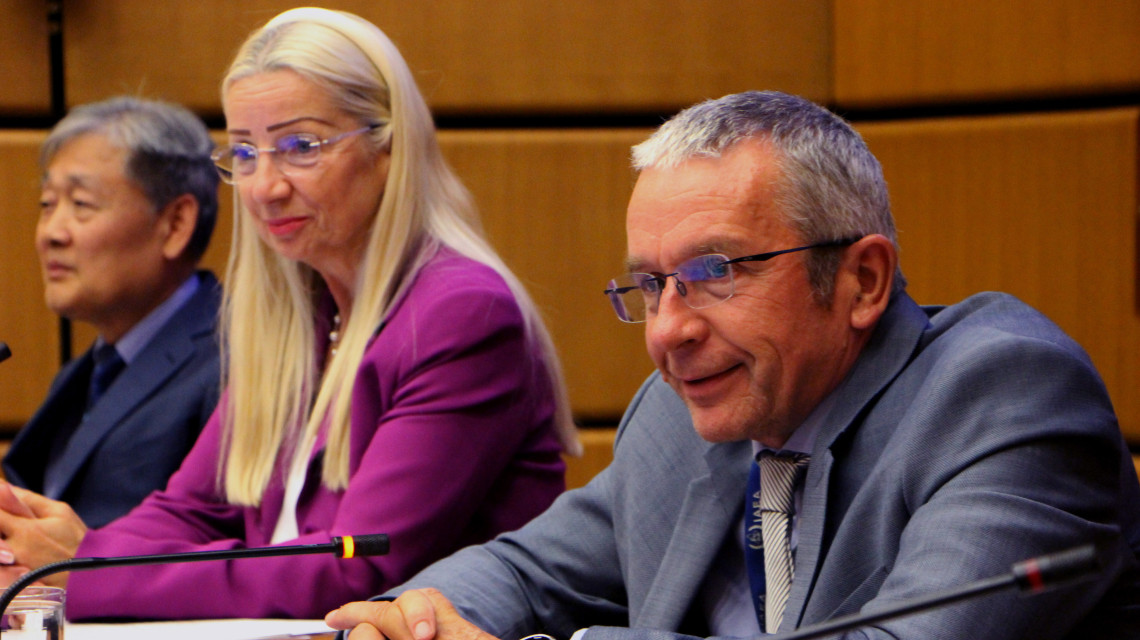National Liaison Officers (NLOs) and Assistants (NLAs) act as the primary contact point between the IAEA and a country on matters relating to the technical cooperation (TC) programme. On 28 September, on the margins of the 67th IAEA General Conference, more than 42 NLOs and NLAs from 31 countries in Europe and Central Asia met in Vienna and virtually, to review and plan TC activities to face emerging challenges to development in the region.
Through the IAEA’s technical cooperation programme, challenges ranging from insufficient cancer care to the sustainable use of groundwater to energy security, among others, are addressed through the 178 national and 37 regional projects currently ongoing in Europe and Central Asia.
Sixty-nine new national projects and ten new regional projects will soon be proposed for approval by the IAEA Board of Governors for the 2024-2025 technical cooperation cycle. The success of such projects largely depends on the quality of project, and this was a key point of deliberation for the event participants.
“High quality project design is of the utmost importance for a successful TC programme, and I would like to thank all Member States for your efforts to ensure this. Project ownership lies with you, the Member States” said Hua Liu, IAEA Deputy Director General and Head of the Department of Technical Cooperation. “I have initiated a regular fellowship training programme for NLAs that focuses on transferring know-how regarding TC programme mechanisms and modalities, giving NLAs all the necessary tools required in their crucial role.”







